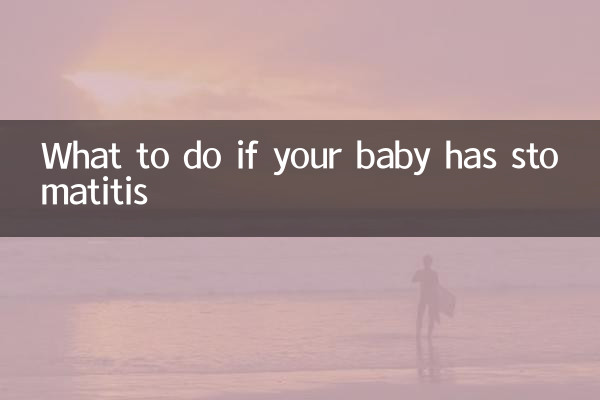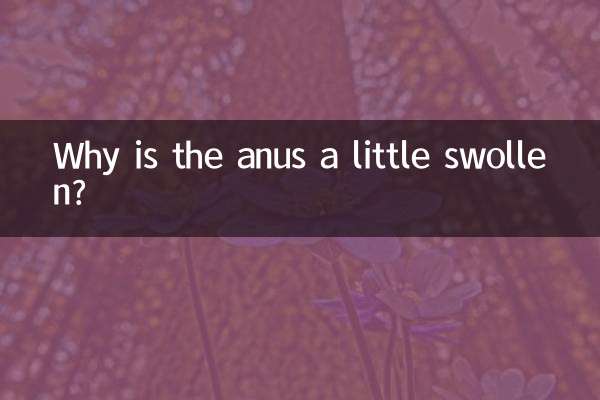What to do if your baby has stomatitis
Recently, stomatitis in babies has become one of the hot topics that parents pay attention to. Many parents are sharing their experiences on social media and parenting forums, seeking solutions. This article will combine the hot content of the entire network in the past 10 days to provide you with a structured solution.
1. Symptoms of stomatitis in babies

Stomatitis in babies usually presents with symptoms such as redness, swelling, ulcers, drooling, and food refusal in the oral mucosa. Here is a summary of common symptoms:
| Symptoms | Description |
|---|---|
| Oral redness and swelling | Redness and swelling of oral mucosa |
| ulcer | Small white or yellow sores in the mouth |
| Drooling | Increased saliva secretion in babies |
| Refusal to eat | Reluctance to eat due to pain |
2. Common causes of stomatitis in babies
There are various causes of stomatitis in babies. The following are the common causes mentioned in popular discussions in the past 10 days:
| Reason | Description |
|---|---|
| viral infection | herpetic stomatitis |
| bacterial infection | such as streptococcal infection |
| allergic reaction | food or drug allergy |
| trauma | bite or burn |
3. Home care methods for baby stomatitis
Based on recent advice from parenting experts, here are some effective home care methods:
| method | Specific operations |
|---|---|
| oral hygiene | Gently clean your mouth with warm water or saline |
| diet modification | Serve warm, soft foods |
| analgesic measures | Use a pain relief gel recommended by your doctor |
| hydration | Prevent dehydration |
4. When Do You Need Medical Treatment?
Although most stomatitis can resolve on its own, the following situations require prompt medical attention:
| Symptoms | Description |
|---|---|
| High fever that persists | Body temperature exceeds 38.5℃ for 24 hours |
| Severe food refusal | Not eating for more than 24 hours |
| dehydration symptoms | Significant decrease in urine output |
| worsening of symptoms | Expansion of ulcer area |
5. Measures to prevent stomatitis in babies
According to recent advice from parenting experts, preventive measures include:
| measures | Description |
|---|---|
| Maintain oral hygiene | Clean your baby’s mouth regularly |
| Avoid cross infection | No sharing of eating utensils |
| Enhance immunity | Ensure nutritional balance |
| Regular physical examination | Identify potential problems promptly |
6. Clarification of misunderstandings in recent popular discussions
In the past 10 days of discussion, we found the following common misunderstandings that need to be clarified:
| Misunderstanding | facts |
|---|---|
| Apply honey to treat | Honey is prohibited for babies under 1 year old |
| using adult medications | Children's medicines must be used |
| Neglecting oral hygiene | Cleansing helps recovery |
7. Expert advice
Recently, many pediatric experts emphasized on social media:
1. Stomatitis is usually a self-limiting disease and will heal on its own in 7-10 days in most cases.
2. Focus on relieving symptoms and preventing dehydration
3. Do not use antibiotics without permission
4. Stay patient and monitor your baby’s condition closely
8. Summary
Although stomatitis in babies is common, the symptoms can be effectively relieved with correct care. This article has compiled recent hot content and expert advice from across the Internet, hoping to help parents deal with this problem scientifically. Remember, when symptoms are severe or last for a long time, you must seek medical attention promptly.

check the details

check the details